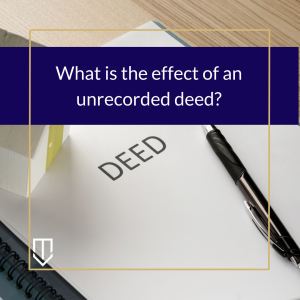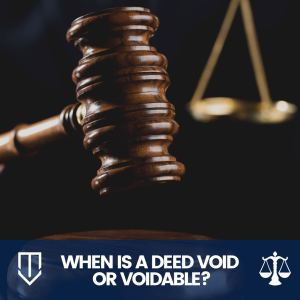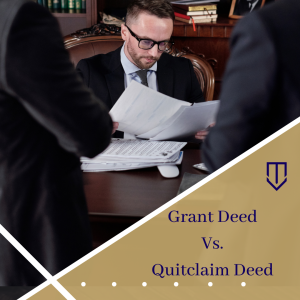 The purpose of this article is to explore the finer distinctions between deeds and contracts. In California law, a deed is one of the most powerful legal documents that any person will ever handle, but there is very little in the public domain available about them in order to understand them better. Moreover, unlike other legal documents that may virtually require an attorney in order to be prepared properly, almost any owner of real estate could likely create an effective deed and transfer real estate with very little effort.
The purpose of this article is to explore the finer distinctions between deeds and contracts. In California law, a deed is one of the most powerful legal documents that any person will ever handle, but there is very little in the public domain available about them in order to understand them better. Moreover, unlike other legal documents that may virtually require an attorney in order to be prepared properly, almost any owner of real estate could likely create an effective deed and transfer real estate with very little effort.
Because deeds are so powerful on the one hand, yet so easy to create on the other, this article seeks to explore some lesser known technical aspects about deeds in order to increase the public’s knowledge about the law.
What is a deed?
 California Partition Law Blog
California Partition Law Blog


 In California, an unrecorded interest is valid between the parties thereto and those who have notice thereof. (Civ. Code § 1217.)
In California, an unrecorded interest is valid between the parties thereto and those who have notice thereof. (Civ. Code § 1217.) Civil Code section 2924 states that “every transfer of an interest in property, other than in trust, made only as a security for the performance of another act, is to be deemed a mortgage.” The “other than in trust” portion of the statute refers only to express trusts, however, because “under a deed of trust the trustee obtains none of the incidents of ownership, other than the right to convey upon default.” (Blair v. Blair (1941) 44 Cal.App.2d 140, 146.)
Civil Code section 2924 states that “every transfer of an interest in property, other than in trust, made only as a security for the performance of another act, is to be deemed a mortgage.” The “other than in trust” portion of the statute refers only to express trusts, however, because “under a deed of trust the trustee obtains none of the incidents of ownership, other than the right to convey upon default.” (Blair v. Blair (1941) 44 Cal.App.2d 140, 146.) The deed to a property is the most important document a property owner has. It describes the title and its associated rights while operating as the conveyance of property itself. For that reason, the law presumes the validity of deeds without defects on their face. But that does not mean that every deed is legally valid and not subject to cancellation.
The deed to a property is the most important document a property owner has. It describes the title and its associated rights while operating as the conveyance of property itself. For that reason, the law presumes the validity of deeds without defects on their face. But that does not mean that every deed is legally valid and not subject to cancellation. An escrow is a tool used in
An escrow is a tool used in  The deed to a property is the most important document a property owner has. It describes the title and its associated rights while operating as the grant of the property itself. But not all deeds are created equal.
The deed to a property is the most important document a property owner has. It describes the title and its associated rights while operating as the grant of the property itself. But not all deeds are created equal.